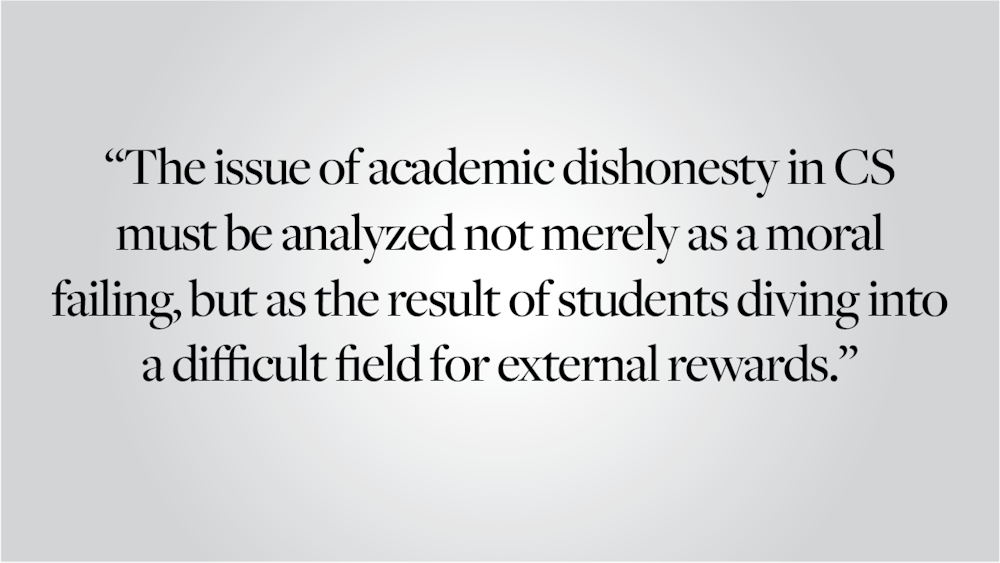When I first came to Brown last fall, it felt as if everyone and their mother was a computer science concentrator. Sure, some people were pursuing economics, but for the most part, computer science seemed to be the new trend among students. Last year, it was the most completed concentration among Brown undergraduates. While it’s great that Brown has a thriving computer science community, we need to address the cheating epidemic that has come to define the discipline.
When I say that the CS department has a cheating problem, I am not saying that the field is corrupted. I’m a computer science student myself, and I have not witnessed any cheating incidents firsthand. However, there is still a vast amount of cases of cheating to merit concern. Last semester, one of my CS professors called out over twenty cases of cheating on a homework assignment. Though it can be tempting to blame this behavior on a student’s faulty morals or laziness, such a simplistic explanation fails to engage with the root of the problem. The issue of academic dishonesty in CS must be analyzed not merely as a moral failing, but as the result of students diving into a difficult field for external rewards.
Students are more likely to cheat in courses they don’t enjoy. It’s a rather intuitive idea that has been borne out by research in the field of educational psychology. The Open Curriculum should theoretically counteract this motive — if students have free rein over their courses, wouldn’t they choose courses they enjoy? Based on personal experience, the Open Curriculum does indeed have this effect for fields students are intrinsically motivated to pursue. Foreign languages are an excellent example of this. No student at Brown is under the illusion that taking, say, French will land them a wildly lucrative career. Students who take foreign languages are generally there because they enjoy learning them.
Unfortunately, CS comes with a slew of extrinsic motivators that predispose students who don’t particularly like the field to enter it anyway. A prominent reason driving the nationwide surge in CS concentrators is the perception that such a degree will secure a well-paying job. Notwithstanding the fact that students probably won’t land that cushy job at Google if they had to cheat their way through an introductory CS course, it’s understandable why students anxious about their future would be attracted to a field that promises a lucrative career post-graduation. But, as any student studying CS knows, the work is notoriously frustrating. I know of no other field where students are actively encouraged to hold one-sided conversations with inanimate rubber duckies as a way of getting through problem sets. That is why when students who, to put it bluntly, are only in it for the money, thrust themselves into a notoriously complex field of study, the result is a sizable subset succumbing to the temptation to take the easy way out.
Are these factors true for all CS cheaters? Probably not. I’m sure that there exists a contingent of cheaters who ape their work from ChatGPT out of pure laziness. But those individuals don’t negate the external factors pushing disinterested students into the field. The first step to eliminating academic dishonesty in CS is to acknowledge these factors. Introductory CS courses need to confront this issue early on to ensure that those who remain love the material enough to not try to cheat their way to a paycheck.
Victor Chang ’27 can be reached at victor_a_chang@brown.edu. Please send responses to this opinion to letters@browndailyherald.com and other op-eds to opinions@browndailyherald.com.





